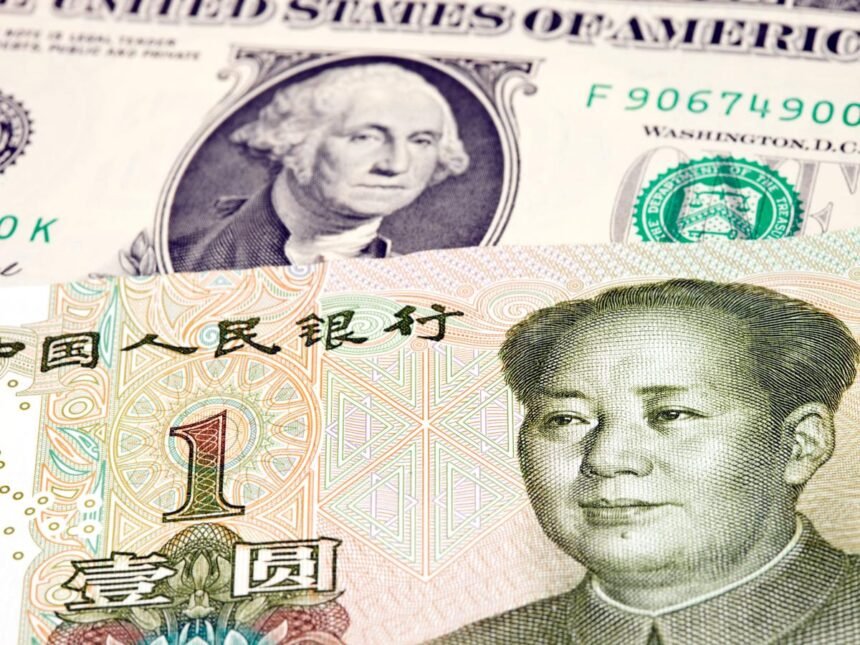-
China is pushing global use of the yuan to reduce the impact of potential Western sanctions.
-
It aims to guard against sanctions in scenarios such as military conflict over Taiwan, a researcher says.
-
But China’s trade partners face challenges in using more yuan.
China is on a drive to expand the use of the yuan internationally, but a researcher says Beijing’s near-term intent is more about protecting against sanctions than currency dominance.
“China’s strategies to develop an alternative financial system are defensive rather than offensive — at least for now,” Zoe Liu, a fellow for China studies at the Council on Foreign Relations, wrote on Wednesday.
Liu wrote that Beijing’s goal was to minimize any impact of potential sweeping sanctions from the West in “extreme geopolitical scenarios such as a military conflict over Taiwan,” which China claims as its territory. Her post was published on the website of the Official Monetary and Financial Institutions Forum, a London think tank.
“Expanding the use of the renminbi in trade is less challenging than increasing its status as an international reserve currency,” Liu wrote.
Countries around the world have been diversifying their assets and chipping away at the dominance of the US dollar over fears that — like Russia — they could be shut out of the world’s greenback-based financial system should sanctions hit.
However, king dollar is so entrenched in the world’s financial system that few really think it can be dethroned.
The yuan faces challenges in its globalization
While the US and China’s strategic competition points to a possible race for currency supremacy, the Chinese yuan is far from ready — and even Beijing knows that.
An often-cited hurdle to the yuan’s internationalization is China’s use of capital controls to maintain financial stability. This means Beijing has control over how much foreign money can move in and out of China’s economy, which in turn influences the foreign-currency exchange rate.
But Liu wrote that capital controls weren’t necessarily a dealbreaker for the broader adoption of the yuan in trade.
“China is already a top trading partner for over 120 countries, and the Chinese government is willing to facilitate exports by offering currency swaps and providing trade finance,” she explained.
But the yuan’s path to becoming an international reserve currency is fraught with obstacles because of other factors. The factors listed by Liu include the lack of risk-free yuan-denominated assets, the somewhat closed nature of the Chinese financial market, and the preference of China’s leader, Xi Jinping, for one-man rule rather than the rule of law.
Businesses have reservations about using the yuan
Recent data from China’s central bank shows that even Chinese businesses aren’t that sold on the yuan, as they hold back on converting their foreign-exchange earnings into the Chinese currency.
This appears to be primarily because of the yuan’s current weakness. It also shows that it’s not so easy to displace the mighty US dollar as the world’s top reserve and trading currency of choice.
A recent global survey of about 1,660 enterprises showed that there just wasn’t enough interest in using the yuan to trade.
Conducted in March by China’s Bank of Communications and Renmin University, about three-quarters of the survey’s respondents were in East Asia. Another fifth of respondents were in Southeast and Central Asia.
Half of the companies surveyed said the main stumbling block to wider use of the yuan was simply because their trading partners weren’t willing to use the currency.
About 64% of all respondents said complex policies were the main obstacle, and more than 40% cited the compatibility of laws and regulations and barriers to capital flow as major difficulties.
Read the original article on Business Insider





















